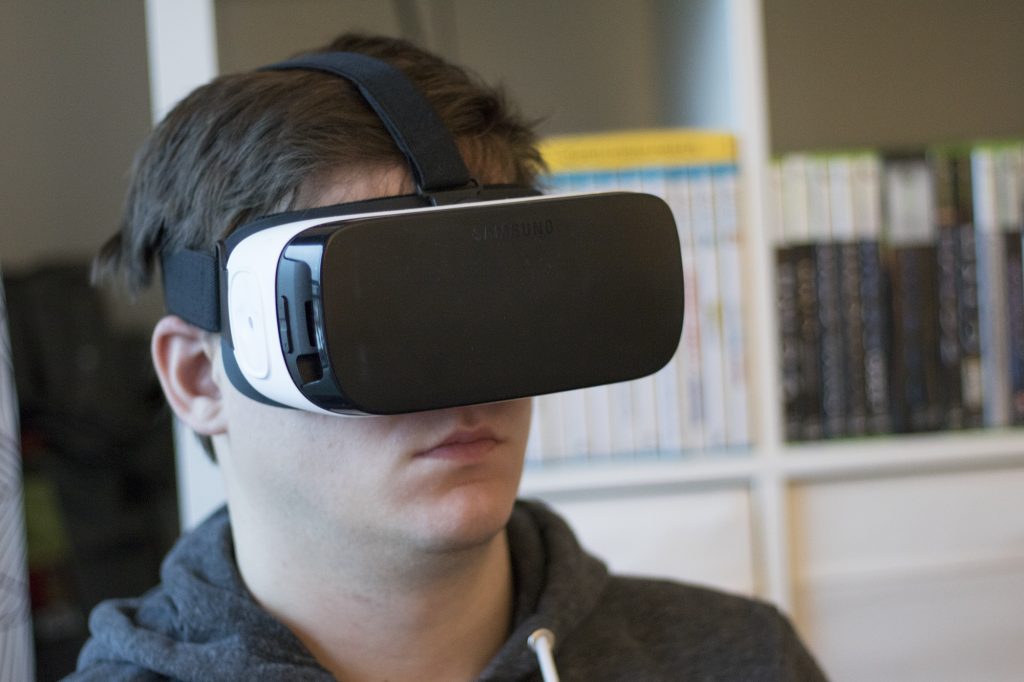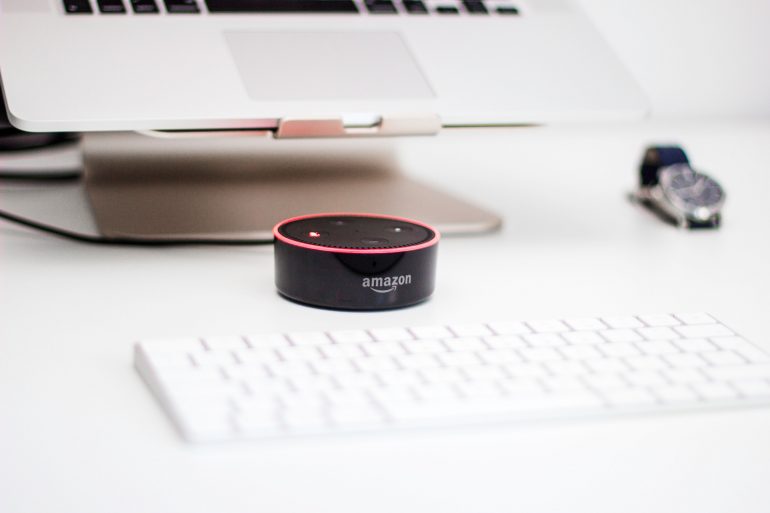The speed of technological change and innovation is moving faster than ever, disrupting industries and lifestyle routines. As we move into a new year, I wanted to take the time to contemplate the direction of industry trends that will shape our future.
2017 was a wild year, especially for Bitcoin and other cryptocurrencies, voice technology, machine learning, and AI. We saw Bitcoin hit over $19,000 USD and over 600 new cryptocurrencies came to market. The scary thing is the initial coin offering (ICO) market, where people are rushing out to ICO but we really haven’t seen many practical ICOs. The race is on, but make sure your ICO carries value.
We are starting to see the rise of AI and machine learning. Autonomous vehicles are becoming mainstream; Tesla announced its self-driving truck and is taking orders, and cities are experimenting with driverless ride sharing. Facial recognition software is becoming normalized; we can now authenticate payments with Face ID on the iPhone X. Bots took over social media and started spreading fake news — in this way, tech was a victim of its own success.
As more and more applications accomplish tasks and operate more efficiently and effectively than humans, people will continue to ask about AI ethics and regulations. Let’s see what happens in 2018…
1. Cryptocurrencies will be legitimized
The cryptocurrencies market is growing and changing rapidly. The London Block Exchange estimates that one-third of millenials will invest in Bitcoin in 2018. The hype around cryptocurrencies has grown incredibly in the past few years, but can be confusing. Cryptocurrencies have no traditional anchors — i.e. a central bank — somehow involve mining, and have this thing called ‘blockchain.’ So let’s break it down.
Blockchain is a publicly-shared database or ledger of interlinked records of peer-to-peer transactions, called blocks, that are tracked, and secured from being manipulated. These transactions could involve a currency like Bitcoin, financial assets, records, or any type of information. With blockchain, transactions can be made without a third party (i.e. a bank).
For some brief history: in 2008, Satoshi Nakamoto, a pseudonymous individual, released a Bitcoin whitepaper, and in January 2009, Nakamoto implemented Bitcoin software as an open-source code. Shortly after, Nakamoto mined the first ever blockchain, the genesis block, and received 50 bitcoins.
Since then, governments and regulatory financial institutions have been debating the legitimacy and legality of cryptocurrencies while crypto-mania took the tech world by storm.
By 2015, over 100,000 merchants were accepting Bitcoin. Somewhere between 2.9 million and 5.8 million people are using a cryptocurrency. As of last week, Bitcoin is legally traded on the futures market, and at the time of writing this post, Bitcoin has exceeded $16,000 USD. It has never been easier to move money around.
Governments are starting to recognize the popularity of cryptocurrencies, and are rallying to figure out the risks and benefits of digital currencies. In 2018, governments and financial institutions will work towards regulation and legitimization of Bitcoin and other cryptocurrencies.
2. Voice and visual search will come together
Amazon Alexa, Google Home, Siri, and Cortana are seriously disrupting ‘search.’ We no longer have to open, click, type, backspace, touch, hit enter, etc., to get an answer. We can now use our voice to search— a minimum output for maximum reward. Voice technology is fundamentally changing search technology and SEO.
So what’s next in this evolution?
In 2018, we will see hospitals and healthcare professionals look at IT as a resource, not a cost. More important breakthroughs are on the horizon.
Voice and visual will merge to provide users with a more streamlined and interactive digital experience. The Amazon Echo Show has already penetrated the market, allowing users to make video calls, watch videos, shop on-screen, all through voice control. More screen-based hardware and voice assistants will integrate and we will be able to visually interact with our technology, but also through touch and speech. The digital experience will be fully immersive and interactive.
Voice isn’t just being adopted by millennials, but also the elderly and the medical community. Millennials are driving the adoption of voice technology, while Gen Xers and baby boomers are quickly catching up. Young adults and teens mostly use voice technology to play music and surf the web, while older adults find the reminder and calendar features most useful. The healthcare sector is also adopting voice technology to improve patient experiences and car.
3. AI adoption will continue in the enterprise and in consumer experiences
AI is gaining momentum. But the low-hanging fruits lie with automation, especially in enterprise. AI and automation technologies are helping organizations approach operations in entirely new ways. C-suite executives are starting to ask themselves how they can transform their business. What functions can and should be automated? And how can we achieve, adopt, and adapt to these automation strategies?
Enterprises will continue to adopt AI automation strategies to meet business objectives.
Consumers will also interact more and more with AI, and will demand AI in new areas, like customer service. As AI matures, consumers will prefer to speak and engage with an efficient machine to accomplish tasks — from the mundane to the extraordinary.
So where will we see this shift?
In 2018, SmartApps will rise. We already interact with applications on a daily basis, but we’re served with the same boring, bland experience. Apps have the potential to really get to know us, and on a 1:1 level. Consumers will start to expect a personalized and tailored experience from their SmartApps. SmartApps with AI are definitely on the horizon.
4. Everything becomes a service
More and more, we are looking for subscription or pay-as-you-go services (think: Netflix, Spotify, Car2Go). Paying for services based on use is becoming status quo. In 2018, we will see many more — and new! — subscription and pay-per-use service models, and this will range from micro-insurance lending to cell phone payments to car-use. For example, Cadillac recently expanded BOOK. Members in LA, Dallas, and New York can now select their preferred premium Cadillac model and then swap it for another when the inspiration or need strikes. You can read more about BOOK here.
2018 will bring more subscription-based models, but by 2020, this will all be passé. Pay-per-use will be the norm.
5. Live events are the future of TV
Viewers in the United States are watching 1.1 billion hours of live TV daily. Traditional TV viewing is on the decline; people are cord cutting and getting a Fire TV Stick or a Roku. But live TV still reigns supreme.
In 2018, AI, VR, AR, computer and phone technologies will sync and integrate with live TV, and create new and exciting ways for consumers to interact with live events. We will be able to consume live TV through various forms of media and have fully immersive experiences.

Also, be on the lookout for the rise of esports. This market’s revenue is supposed to pass $1 billion for the first time in 2018, according to Deloitte.
Fun Fact: half of all live streaming in the world comes from one country — China!
6. Bring on digital shopping
E-commerce is growing, with more and more consumers spending their shopping budget online rather than in-store. Each year, digital shopping is growing by 23 percent. Brick-and-mortar retailers are on the decline. Businesses will need to ask themselves how they can draw consumers in and how they can deliver a creative customer experience. It is an exciting time to be a consumer.
Voice capabilities, AI, and AR have the potential to fundamentally change the shopping experience. Imagine using AR to try on a pair of shoes or test out a new bike — exciting, right?
Retailers that bring unique products and customer experiences will win. Showroom outlets won’t be frowned upon by retailers – instead, they will adopt it.
7. Technical breakthroughs will continue in healthcare
The healthcare sector has been slow to adopt cutting-edge technology. But digital technology has the potential to wholly disrupt healthcare systems, which are often unsustainable, expensive, and slow.
In 2018, we will see hospitals and healthcare professionals look at IT as a resource, not a cost. We will see the healthcare sector embrace tech, and more important breakthroughs are on the horizon.
VR and AR technology will help medical students and professionals practice and refine surgical techniques, construct 3D imagery, and develop their bedside manner; check out Embodied Labs’ work with VR. Nanotechnology could be used to spot-deliver drugs, voice technology will provide patient companionship, and robotics will be adopted by physiotherapists to help with post-surgery recovery and rehabilitation.
Automation, AI, and collaboration tools will become more prominent in this sector, helping healthcare professionals diagnose and treat. Patient experiences will improve.
8. Digital transformation will take over the enterprise
In 2018, organizations won’t be able to avoid innovation, and will need to adapt to market trends. Shareholders of large organizations won’t tolerate slow moving big businesses, especially with startups coming for the enterprise. The enterprises that win the race will be the ones that innovate quickly. Transformation won’t be a choice, it will be necessary for survival.
A ping-pong table and cool furniture won’t be enough, ‘showroom’ innovation labs will decline as C-level executives demand more. The labs that bring real innovation will surge. Successful transformation requires collaboration and support, with an eye towards customer experience, operational agility, culture, and tech integration.
C-suite executives will have to cut through the shallow, ambiguous definitions of “digital transformation” and adopt a clear understanding of what it means to their organization.
Feature photo via Unsplash

